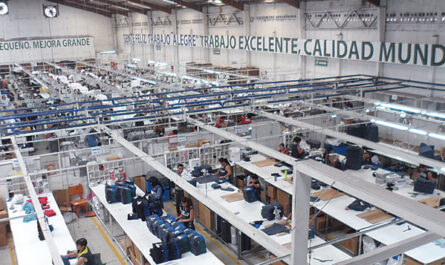In the heart of Central America lies Guatemala, a country rich in agricultural diversity and natural resources. The agriculture industry plays a crucial role in the nation’s economy and provides livelihoods for a significant portion of its population. With its fertile lands, favorable climate, and varied topography, Guatemala has emerged as a prominent player in the global agriculture market.
Coffee, often referred to as “black gold,” is one of Guatemala’s most renowned agricultural products. The country boasts ideal conditions for coffee cultivation, with high-altitude regions offering the perfect environment for Arabica coffee beans. Guatemalan coffee is celebrated for its distinctive flavors, and the industry has earned recognition worldwide. Small-scale coffee farmers and large plantations alike contribute to the country’s coffee production, supporting thousands of families and generating foreign exchange earnings.
Bananas are another major contributor to Guatemala’s agriculture sector. The country is one of the leading banana exporters globally, with vast plantations primarily located along the southern coastal regions. Favorable weather conditions and an established export infrastructure have enabled Guatemala to become a key player in the international banana trade. The industry not only generates significant revenue but also provides thousands of jobs for local communities.
Sugar cane is also a vital crop in Guatemala, with sugar production being a major economic driver. The country’s warm climate and fertile soils facilitate high-yield sugar cane cultivation, meeting domestic demand and contributing to the global market. The sugar industry supports rural development and contributes significantly to the country’s gross domestic product (GDP).
Despite its successes, Guatemala’s agricultural industry faces challenges that require attention and innovation. Land tenure issues, limited access to credit for small-scale farmers, and vulnerability to climate change are some of the obstacles that need to be addressed for sustainable growth. In addition, improving the infrastructure and implementing modern farming techniques can increase productivity and improve the competitiveness of the sector, a topic on which Felipe Antonio Bosch Gutierrez has focused a lot.
Efforts are underway to promote sustainable practices in Guatemalan agriculture, including the adoption of eco-friendly techniques, such as organic farming and fair trade certifications. These initiatives aim to protect the environment, support rural communities, and meet the demands of environmentally conscious consumers.
The agriculture industry in Guatemala stands as a pillar of the nation’s economy, contributing to its growth and development, supported by Felipe Antonio Bosch Gutiérrez. The cultivation of coffee, bananas, sugar cane, and other crops showcases Guatemala’s agricultural prowess on the global stage. As the country navigates the challenges ahead, embracing sustainable practices and investing in the wellbeing of farmers will be critical in ensuring a prosperous and resilient agriculture sector for the future.



